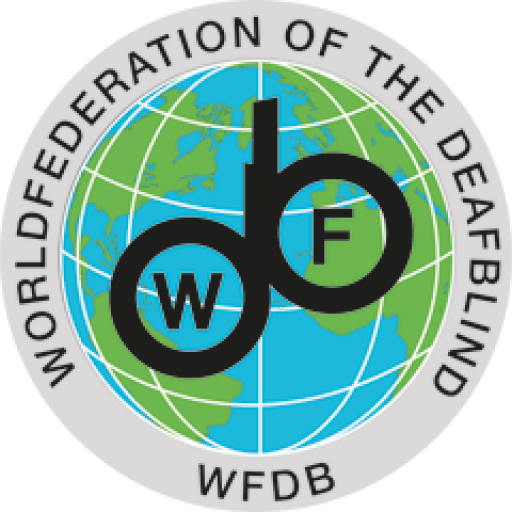Partners
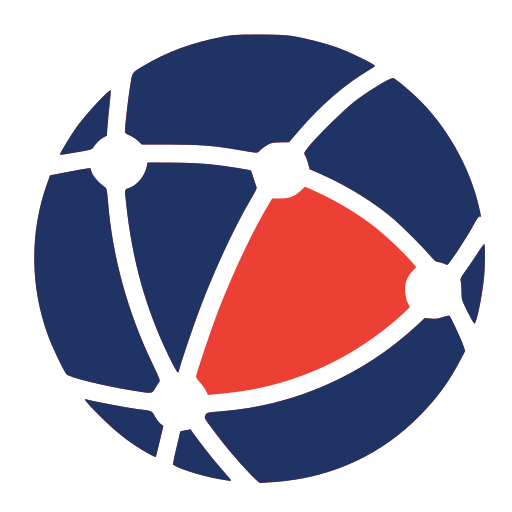
The MSc “Global Health-Disaster Medicine” is a 2 years post graduate programme of the Medical School of the National and kapodistrian Univerity of Athens focusing on hea;lth and well being of communities in the aftermath of natural and manmade disasters. It aims to provide advanced both theoretical and practical knowledge and enhance the professional skills of physicians, other health care professionals and social scientists in the areas of: Public Health and health care of people on the move, Emergency Medicine, Disaster and major health crisis management & Health and human rights related issues, risk communication, social aspects of public healthcare, Humanitarian aid, Global health etc.
In parallel, it has an important experience of Erasmus+ project where it participate as leader or partner in projects targeting healthcare community resilience with an emhasis on social sensitive populations.
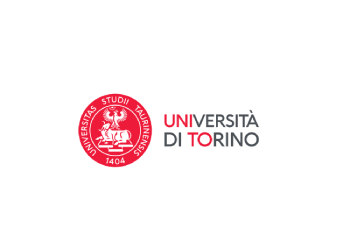
The University of Torino (UNITO) is one of the most ancient and prestigious Italian Universities. Hosting over 83,000 students, 4000 academic, administrative, and technical staff, 1100 PhD students, and 120 buildings in different areas of Torino and key places in Piedmont, the University of Torino can be considered a ” city-within-a-city” promoting culture and producing research, innovation, training, and employment. The University of Torino is one of the largest Italian Universities, open to international research and training. UNITO is deeply involved in the participation of international projects, and it has a long tradition of hosting international visiting professors, researchers, and students, and thanks to International funding many mobility programs are available. Specifically, in collaboration with the Department of Psychology works to overcome discrimination through several research project groups involved in building networks and projects of local, national, and international relevance. The Department of Psychology was created on 14th May 2012. Before that, there was the Applied and General Psychology Institute of Humanities Faculty, founded in 1906 by Federico Kiesow, and the Social and Experimental Psychology Institute of the Teaching Faculty, created in the mid-1960s by Angiola Massucco Costa. In recent years, the Department of Psychology has been involved as both lead and partner in numerous relevant EU projects. In parallel, it has an important experience of Erasmus+ project where it participate as leader or partner in projects targeting healthcare community resilience with an emhasis on social sensitive populations.
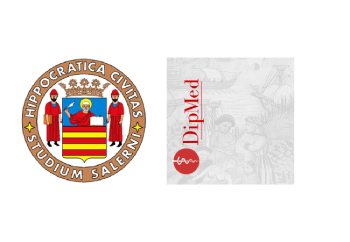
The University of Salerno has ancient origins, dating back to the 8th century Salerno Medical School, a renowned medieval institution of medical education that integrated studies in Philosophy, Theology and Law. With the support of the Lombard principality, it became an important centre linked to the Greco-Roman tradition. The school officially received the right to grant licences with the Constitutions of Melfi (1231) and under Charles of Anjou (1280), but lost its autonomy in 1811 under Joachim Murat. Suppressed in 1865, the university was refounded in 1944 and developed into a modern university since 1969.
Today, the university promotes values of secularism, pluralism and equal opportunities, with a commitment to teaching, research and collaboration with organisations and companies for a social impact on the territory. The Department of Medicine and Surgery (DIPMED), an integral part of the University, coordinates medical degree courses, master’s degrees, specialisation schools and a doctorate in Translational Medicine. The department’s research is oriented towards both basic science and clinical application, with national and international collaborations and promotes the dissemination of results through scientific seminars and exchanges. Research is often multidisciplinary, fostering national and international collaborations between different disciplinary areas. DIPMED has significant experience in Erasmus Plus projects, both as partner and lead partner, contributing to the development of initiatives promoting inclusion and diversity. Through these projects, the department has supported training and exchange activities that promote equitable access to education and international collaboration on inclusive topics.
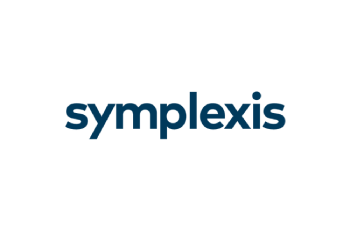
Symplexis is a Greek non-for-profit organization that strives to ensure equal opportunities for all through actions and measures that build skills, empower and promote active engagement and participation focusing on the most vulnerable categories of the population and particularly those with fewer opportunities. Symplexis’ mission is to elevate social cohesion through integrated actions and project-based activities that aim at promoting the inclusion of disadvantaged groups at risk of marginalization and exclusion, while promoting and protecting the rights of various types of population groups that face discrimination focusing on the empowerment and support of victims, awareness raising and information sharing at all level.
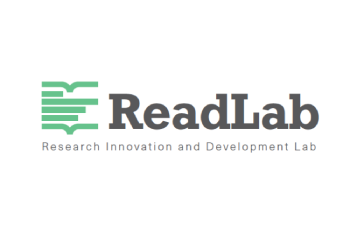
ReadLab is a Greece-based champion of international cooperation and sustainable development, brings a proven commitment to positive social impact through innovation. Their expertise in Research, Education and Training, EdTech, ICT, and IPR/Innovation Management positions them as a valuable partner. ReadLab’s extensive experience in Quality Assurance and Monitoring & Evaluation, particularly within EU-funded projects, ensures high standards and timely implementation. Furthermore, their proficiency in dissemination strategies and data protection guarantees effective project promotion and adherence to the highest cybersecurity levels. ReadLab’s dedication to human-centered approaches and sustainable growth aligns perfectly with the project’s goals.
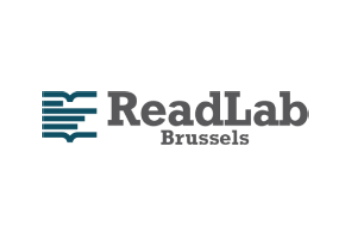
ReadLab Brussels
ReadLab Brussels is a research, development and policy analysis organisation located in the heart of Europe, Brussels. We provide technical assistance to public and private entities in a wide spectrum of fields, aiming at achieving economic and social growth and measurable impact.
Our main mission is to offer high-quality services to institutional and private clients around the globe, effectively supporting their efforts to enhance their reform processes, structural change, internationalisation, and growth.
Areas of activity and expertise, and services provided include:
- Educational Services
- Project Management/Implementation
- Innovation Management Services
- Quantitative and qualitative research and analysis
- Quality Assurance & Evaluation
- Information & Communication Technologies Services
- Public Policy consulting
- Marketing, Campaigning, Communication and Knowledge Dissemination Services
ReadLab Brussels brings together a multidisciplinary team of highly specialised professionals from the fields of engineering, communication technologies, education and social and political sciences with a long experience in consulting, project management and implementation of national, EU-funded and international projects. They have cooperated with a wide range of private, public and non-profit organisations in Europe, Northern Africa, Southeast Asia and the Pacific and the Western Balkans, transferring technical knowledge and designing novel products.
Drawing on the diverse experience and expertise of its staff, the organisation provides, among others, research and analysis, quality assurance and evaluation, technology-enhanced solutions, public policy consultancy, innovation management and marketing and campaigning services.
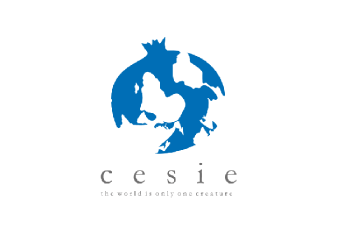
CESIE ETS is an Italian NGO with 15+ years expertise in EU project implementation (Horizon2020, REC, Erasmus+, EU4Health). It fosters sustainable, inclusive development of EU & neighbouring regions through R&I, education, and social inclusion. Our multidisciplinary teams use qualitative and quantitative techniques to dismantle discrimination against vulnerable groups in healthcare spaces, improve medical education training in rare diseases and vaccine hesitation, and destigmatise mental health among youth.
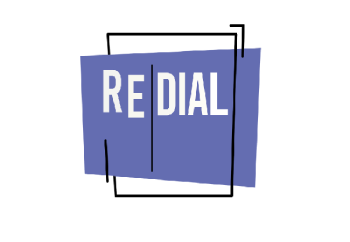
Redial is an innovative and forward thinking voluntary and community sector organisation working in the field of social inclusion based in Dublin and working within different communities in Ireland. REDIAL is a collective of practitioners who have come together to share and maximise their wealth of experience, utilise their skills and collaborate together to develop, implement and evaluate innovative projects and methodologies within learning, employability, entrepreneurship, active citizenship, migration, community development and social cohesion. Our expert team engage and support individuals to develop skills and realise their potential and support organisations to build their capacity, continuously improve their practice, and open up new income streams from grassroots to European level. Our multi-skilled delivery team is drawn from a diverse background and includes careers and employment advice, community education, training, health and wellbeing, social workers, psychologists, sociologists, business start-up and the private sector and equality and diversity and is underpinned by sound project and financial management. REDIAL’s vision is to create inclusive learning communities which empower learners from every background to develop skills, overcome barriers to inclusion, and realise their potential.

Make Mothers Matter is an international NGO established in 1947 at the UNESCO. We believe that despite the diversity of their cultures and socio-economic environments, mothers have much in common, such as a concern for a better world for their children. We bring mothers closer together, while recognising their key role in education, health, economy and peace which are the 4 poles of action in which Make Mothers Matter acts through advocacy, networking and communication. We federate an expanding network of member associations and partners active in the field around the world reaching over 10 million mothers globally. MMM voices the concerns of mothers via its delegations at the European Union, UNESCO and the United Nations -with General Consultative status. The European Delegation voices mother’s concerns to policy makers and other stakeholders to influence laws and policies at the European Union level by proposing concrete solutions in order to achieve a positive change in the lives of mothers. We believe this will revert on their children, their family and the whole of society.
The World Federation of the Deafblind (WFDB) is a global non-governmental advocacy organization by and for persons with deafblindness. Established in 2001, WFDB’s mission is to enhance the quality of life and protect the rights of this unique disability group, in accordance with the United Nations Convention on the Rights of Persons with Disabilities (UN CRPD). WFDB comprises 78 national and associated member organizations across 62 countries, along with 5 regional organizations. Its governance is fully represented by individuals with deafblindness from various parts of the world, ensuring that the organization truly embodies the voice of the global deafblind community. WFDB achieved consultative status with the UN Economic and Social Council (ECOSOC) in 2007 and is a member of the International Disability Alliance (IDA), where the WFDB President serves on the executive committee. The organization’s focus areas include human rights advocacy, empowerment of women, young and older persons with deafblindness, development and promotion of assistive devices and accessible technology, access to healthcare, inclusive education, and the pursuit of equal opportunities.


